Star Bulk and Eagle Bulk Agree to $2.1 Billion Merger
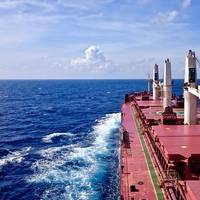
Dry bulk shipping companies Star Bulk Carriers and Eagle Bulk Shipping have reached a deal to merge in a $2.1 billion all-stock deal.The terms of the definitive agreement have received unanimous approval from the boards of directors of both New York-listed ocean carriers, and the companes expect the deal to close in the first half of 2024 following approvals from regulators and Eagle shareholder.Eagle shareholders will receive 2.6211 shares of Star Bulk common stock for each share of Eagle common stock owned.
Terntank Lands Charters for Sail-equipped, Methanol-ready Tankers
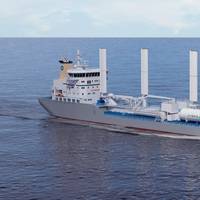
Swedish shipping company Terntank announced it has signed an agreement with Neste for time chartering two new lower-emission product tankers.The ships, which are designed with foldable suction sails and dual-fuel engine enabling the use of e-methanol as fuel, are tailored to transport a wide variety of liquid cargoes including renewable raw materials, such as waste and residue oils and fats, to Neste’s refineries. At the refineries, products such as renewable diesel and sustainable aviation fuel (SAF) will be loaded for transport.“Together with our partners…
Navigating Climate Change: How Shipping is Adapting in the St. Lawrence
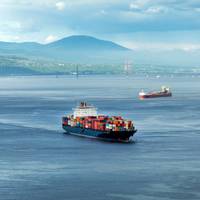
When compared to other major river navigation routes around the world, the St. Lawrence River is a favored waterway.It flows from the mouth of Lake Ontario, at an altitude of 250 meters. From its source to the Gulf, the river travels 1,197 kilometers, and is fed by several tributaries including the Ottawa, Richelieu, Saint-François and Saguenay rivers.But the effects of climate change are being felt. The marine industry is adapting. It is currently embarking on a shift towards…
Interview: Jennifer Carpenter, President & CEO, AWO

Jennifer Carpenter joined The American Waterways Operators (AWO), the national trade association representing the inland and coastal tugboat, towboat and barge industry, in August 1990 and became its president and CEO in January 2020. She weighs in some of the most important developments in the industry today, from “hugely exciting” opportunities in offshore wind , tech innovation and decarbonization, to labor and recruitment challenges.The recent Infrastructure bill is a huge boost for many industries…
Tech File: COBRA Battery System Receives Class Certification
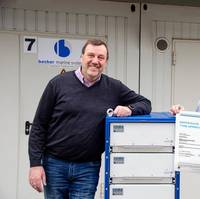
With DNV GL certification obtained in February 2021, the COBRA battery system from Becker Marine Systems can be used for a wide range of inland waterway and maritime shipping applications, and due to demand, Becker is expanding COBRA production at its Winsen (Luhe) location.Tailor-made for maritime, the COBRA system now has full certification including IEC 62619 and IEC 62620 and can now be installed on board inland waterway and ocean-going vessels. “We have achieved the highest…
Using Data, Batteries OSV Operator Cuts Consumption 20%
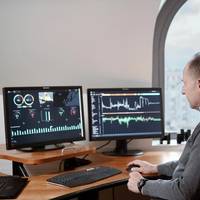
Golden Energy Offshore, Kongsberg collaborate to reduce operational fuel consumption.While vessel owners mull a myriad of fuel and emission reduction technologies, Norwegian Offshore Service Vessel (OSV) owner and operator Golden Energy Offshore reports a 20% operational fuel savings courtesy of its work on vessel performance monitoring with Kongsberg Maritime, a collaboration which includes the deployment of the containerized SAVe Energy battery system earlier this year.“We have a high focus on how our environmental footprint can be reduced…
EPA Grant for Port of LA
The Port of Los Angeles has received an $800,000 grant from the U.S. Environmental Protection Agency (EPA) to deploy green commercial equipment for moving cargo. The award will pay between 25 to 40 percent of the cost to replace and upgrade 18 pieces of yard equipment at two Los Angeles container terminals, with the full complement due to be in service by fall 2018. Two terminal operators, APM Terminals Pacific Ltd. and TraPac LLC, are funding the lion’s share of the $3 million project. APM Terminals will invest more than $2 million to replace 16 yard tractors with new equipment powered by Tier 4 clean diesel engines. TraPac will spend $174,000 to repower two heavy-duty forklifts with Tier 4 engines.
Damen Coordinating European Innovation Project LeanShips
The European Innovation Project LeanShips – Low Energy And Near To Zero Emissions Ships – will demonstrate the effectiveness and reliability of energy saving and emission reduction technologies at real scale. LeanShips is one of the first projects funded under the new European Research and Innovation Framework Program HORIZON 2020. The project is coordinated by Damen Shipyards Group and jointly managed by the Netherlands Maritime Technology Foundation (NMT), the Center of Maritime Technologies (CMT) from Germany and Cetena, the Italian Ship Research Centre. LeanShips officially started on 1 May 2015 with a grant of 17 million Euro. The large project partnership consists of ship owners, shipyards, equipment suppliers and research institutes.
Wärtsilä to Divest its Shares in Two-stroke JV
Wärtsilä announced that it will divest its shares in the Qingdao Qiyao Wärtsilä MHI Linshan Marine Diesel Co. Ltd. (QMD), the joint venture company established for manufacturing large low-speed marine diesel engines. Wärtsilä's shares in the joint venture will be transferred to the current majority shareholder, Qingdao Qiyao Linshan Power Development Co. Ltd., a company fully owned by China Shipbuilding Industry Corporation. The agreement was signed today in Beijing, China. Wärtsilä said the value of the transaction is not significant, and the deal will have a positive effect on Wärtsilä's continuing operations but the impact is not significant. The closing of the transaction is subject to the required regulatory approvals.
Shipping’s Clean Technology Sector Revealed
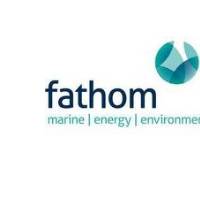
LONDON: April 7th: Over 130 companies are currently providing over sixty emission-reduction “clean” technologies to the international shipping industry, according to ‘The Guide’: the first comprehensive guide to ship efficiency and technology measures, launched today. ‘The Guide’, launched today by Fathom, a leading provider of market intelligence products and services for the marine and energy industries, and supported by BIMCO, the world’s largest private shipping organisation…
ClassNK and NMRI Cooperation Agreement
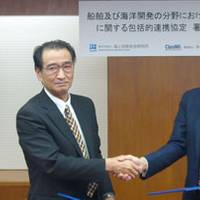
Japan’s National Maritime Research Institute (NMRI) and ClassNK signed an extensive cooperation agreement at a press conference in Tokyo. The comprehensive agreement commits the two organizations to a far reaching cooperative research program, including joint R&D on new GHG emission reduction technologies and the development of new training programs for marine engineers. ClassNK, which has maintained its own independent maritime research center since 1955, and NMRI, Japan’s leading maritime research body…
Wärtsilä, MAN Diesel & Turbo Continue Research Project
Two world-leading European marine engine manufacturers, MAN Diesel & Turbo and Wärtsilä Corporation, have agreed to pursue a large joint research project, the HERCULES-C project, as a continuation of the very successful HERCULES programs for the research and development of marine engine technology. The overall vision of the HERCULES research program is for sustainable and safe energy production from marine power plants. The technological themes of the HERCULES initiative have, since its inception in 2002, been higher efficiency, reduced emissions, and increased reliability for marine engines. However, for taking marine engine technology a step further towards improved sustainability in energy production and total energy economy…
Wärtsilä Inaugurates Research Engine in Switzerland
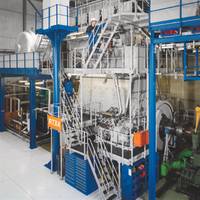
Wärtsilä Corporation inaugurated its new RTX-4 full-scale, low-speed research engine in its Diesel Technology Centre in . This large, RTX-4 research engine is employed in furthering the development of Wärtsilä low-speed marine engines to meet market needs such as further improved reliability, longer times between overhauls, greater fuel efficiency and lower exhaust gas emissions, especially NOX and CO2. Wärtsilä low-speed engines developed on the basis of the research carried…
Wärtsilä's Environmental Report Recognized
Wärtsilä Group's first Environmental Report was ranked the best separate environmental report in 2001 alongside M-Real's report in a competition held in Finland annually to judge the environmental and social responsibility reporting of Finnish companies. The Wärtsilä report is the first report to be published by a Finnish mechanical engineering company. It has been prepared with highly ambitious objectives, adopting the model of the Global Reporting Initiative. The report describes the company's products and their environmental impact. The whole reporting competition, comprising the report, Internet pages and annual report, was won this year by the wholesale and retail chain Kesko Oyj. Wärtsilä Group published its first Environmental Report in June 2001.
EPA Kicks Off Diesel Reduction Projects
At an event in Eugene recently, Michael O. Leavitt, Administrator of the U.S. Environmental Protection Agency helped kick-off the Lane Regional Air Pollution Authority’s announcement of $1.475 million in diesel emission reductions investments for Oregon. The EPA is contributing $600,000 to these efforts. The projects will fund efforts to reduce emissions from idling trucks up and down Oregon’s I-5 corridor, retrofit school buses throughout the state, and improve accessibility and affordability of ultra-low sulfur diesel fuel. truck-idling reduction to school bus retrofits infrastructure to purchase, install and maintain small auxiliary engines that use up to 90 percent less diesel and emit 75 percent less air pollution than idling trucks.





